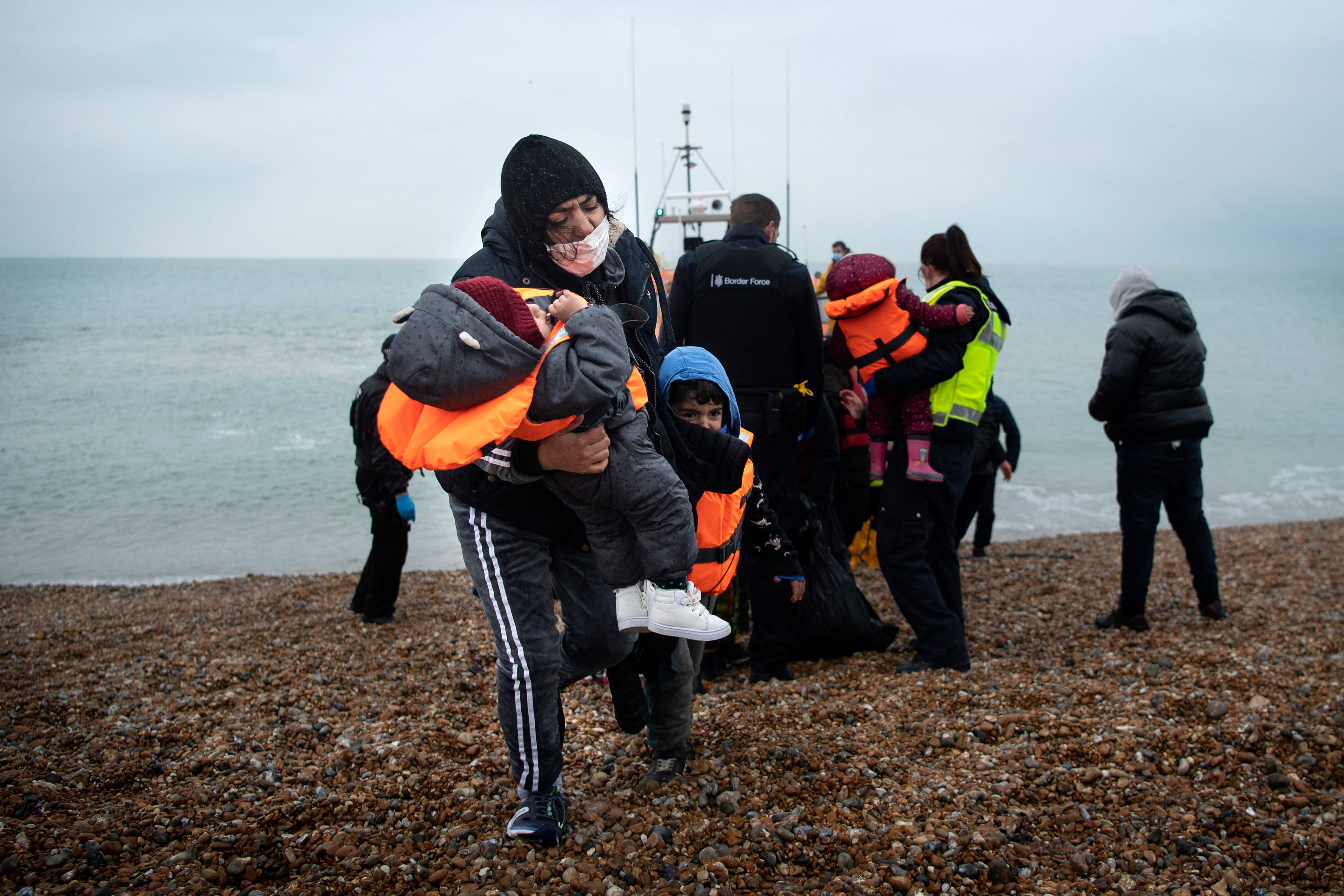One year on, what have we learnt from the Channel tragedy where 27 died?
Editorial: Unforgivably, procedure may have counted for more than the absolute obligation to protect life at sea

One year ago, a dinghy carrying 34 people capsized in the English Channel. At least 27 human beings died a horrible death as a result. It was the sea’s worst-ever migrant disaster.
The tragedy shook even the most xenophobic figures in public life. When their names and life stories became public, it was obvious that those who perished did not conform to the stereotypes of criminals, bogus asylum-seeking young men from “safe” nations such as Albania and the like.
The victims were identified as Kurds, including 10 men, four women and two children; four more were Afghan men, three from Ethiopia, one Kurdish man from Iran, a Somali woman, a Vietnamese man, and one Egyptian male. We will never know how desperate their flight was or how strong their case for refugee status was because they were dead before they could plead for mercy. Never again should such people be referred to by the dehumanising term “illegals”, or spoken of as some “invasion”. Obscene.
Shocking as the incident was, some even more disturbing details have since emerged. There appears to have been a callous lack of concern displayed by some who received distress phone calls from the stricken boat over the course of hours. One stands out. A passenger reported that some of the group were in the water. The French authorities replied: “Yes, but you are in English waters, sir.”
Both the British and French authorities decided that the people were the other jurisdiction’s problem, rather than a humanitarian emergency. Thus, in a rather biblical fashion, they washed their hands of responsibility for the lives soon to be lost.
It was not some mistake made in the chaos of a moment, a crisis at sea over in mere minutes. No, exhausted people were fighting for their lives for many hours, and yet no one was prepared to take responsibility, or so it seems. Unforgivably, procedure may have counted for more than the absolute obligation to protect life at sea. And so the lives were lost.
It is also clear that even the deaths of 27 refugees have not acted as any kind of “deterrent” to those seeking to come to Britain to start a new life, whatever their motivations. It suggests, powerfully, that the Rwanda plan or attempts to criminalise those on board the dinghies simply for being there will not reduce the flow of humanity heading across the Channel for England.
What happened on 24 November last year is a salutary warning and reminder that there are many refugees ready to sacrifice life itself for that dream of a new life and fresh hope. They are not risking drowning for the sake of some meagre benefits and a hotel room somewhere in Britain.
Even if they were, it is obviously not acceptable to have people losing their lives in French or British waters simply because of official incompetence or worse. Even if all they wished for was to work on a building site in London, they hardly deserve such a fate. That carelessness about life applies to both nations, neither of which has shown that much determination to cooperate on the migrant issue in recent years.
Despite the diplomatic initiatives and the solemn treaty-signing ceremonies, the truth is that the British government does not want them coming to Britain, and the French don’t want them in France. Thus, despite the money sent by British taxpayers and local disquiet around Calais and Dunkirk, the French authorities have felt no particular urgency about trying to stop the small boats, nor, since Brexit, in any mood to facilitate orderly returns.
Caught in the middle of this on the UK side are hard-pressed Coast Guard, Border Force, Royal Navy and RNLI personnel. It is they who have to deal with the traumatic aftermath of even relatively “routine” small boat crossings, let alone mass death. They see their duty as saving lives, rightly. Some deride it as them providing a “taxi service”, but the alternative – of death or completely unmanaged travel – is far worse.
To keep up to speed with all the latest opinions and comment, sign up to our free weekly Voices Dispatches newsletter by clicking here
The mental health of these public servants and volunteers cannot but be affected by witnessing such scenes, day in and day out. Junior Home Office staff tasked with conducting interviews that detail harrowing accounts of torture, rape and executions are said to find them too much to bear. That’s not surprising.
The migrant crisis will remain unresolved until some more rational and effective policy can be agreed. One that calls for cooperation on a European level, dealing with crossings at the borders of the EU with Turkey and Belarus, and those making their way across the Mediterranean and Aegean, to land in Malta, Italy and Greece.
Thanks to Brexit, no such policy is being pursued. Safe routes for genuine migrants have not been established, and neither has sufficient effort been put into destroying the smuggling gangs or conducting effective dialogue with the Albanian government on why so many migrants are travelling from there.
The gruesome fact is that there will be more drownings, in part because two great civilised nations can’t find a way to work together. It seems that the tiny stretch of water between their coasts will continue to divide them.






Join our commenting forum
Join thought-provoking conversations, follow other Independent readers and see their replies
Comments